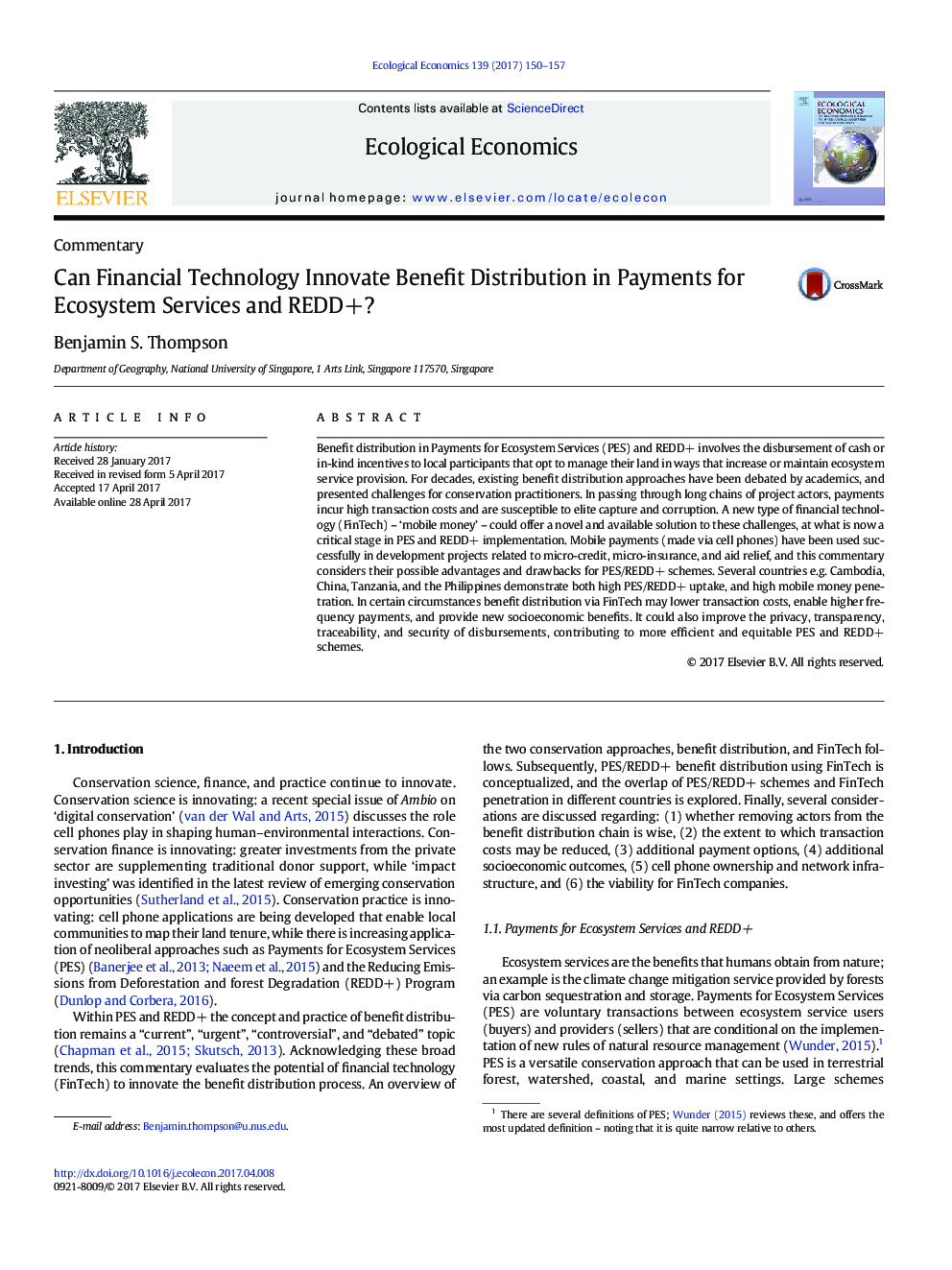| کد مقاله | کد نشریه | سال انتشار | مقاله انگلیسی | نسخه تمام متن |
|---|---|---|---|---|
| 5048796 | 1476340 | 2017 | 8 صفحه PDF | دانلود رایگان |

- PES and REDDÂ + payments often pass through long distribution chains.
- This process generates high transaction costs and increases the likelihood of corruption.
- Mobile payments are financial technology where transactions are made digitally using cell phones.
- Such transactions are quick, cheap, transparent and could radically shorten distribution chains.
- Many countries with PES and REDDÂ + schemes also have established FINTEC platforms.
Benefit distribution in Payments for Ecosystem Services (PES) and REDD+ involves the disbursement of cash or in-kind incentives to local participants that opt to manage their land in ways that increase or maintain ecosystem service provision. For decades, existing benefit distribution approaches have been debated by academics, and presented challenges for conservation practitioners. In passing through long chains of project actors, payments incur high transaction costs and are susceptible to elite capture and corruption. A new type of financial technology (FinTech) - 'mobile money' - could offer a novel and available solution to these challenges, at what is now a critical stage in PES and REDD+ implementation. Mobile payments (made via cell phones) have been used successfully in development projects related to micro-credit, micro-insurance, and aid relief, and this commentary considers their possible advantages and drawbacks for PES/REDD+ schemes. Several countries e.g. Cambodia, China, Tanzania, and the Philippines demonstrate both high PES/REDD+ uptake, and high mobile money penetration. In certain circumstances benefit distribution via FinTech may lower transaction costs, enable higher frequency payments, and provide new socioeconomic benefits. It could also improve the privacy, transparency, traceability, and security of disbursements, contributing to more efficient and equitable PES and REDD+ schemes.
Journal: Ecological Economics - Volume 139, September 2017, Pages 150-157